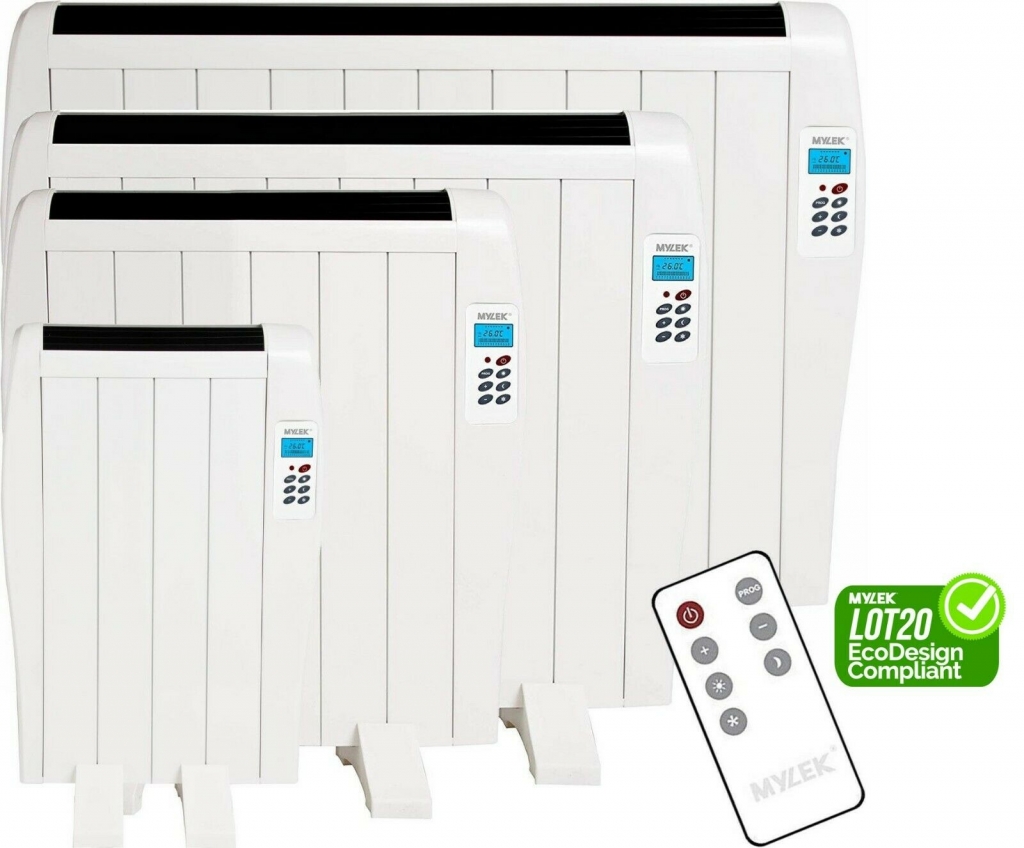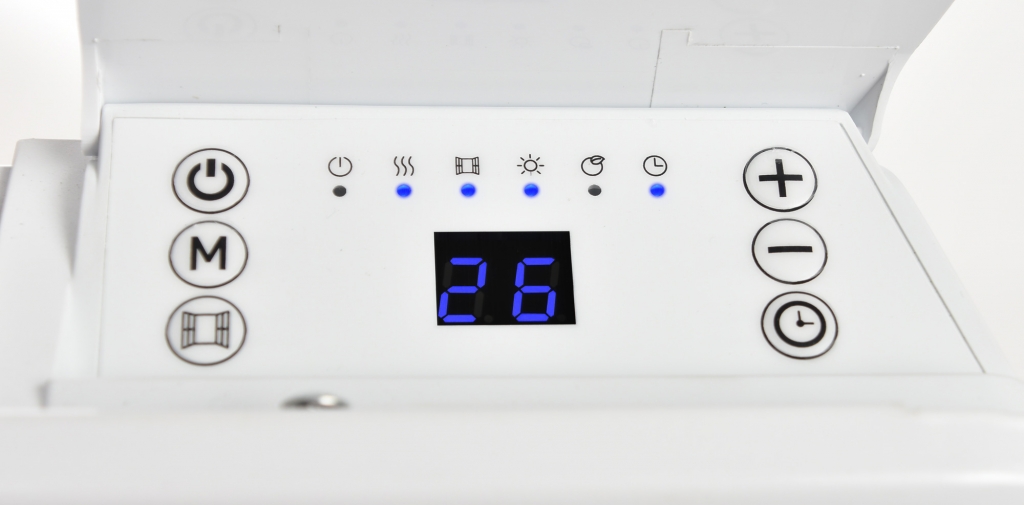.jpg)
It’s fair to say that heating regulations aren’t the most exciting thing in the world, but with the cost of heating our homes rising every year, they’re worth knowing about. Since the start of 2018, the laws governing electric heaters have changed a little bit with the introduction of ERP Lot 20. These laws have changed the heating industry for good, so if you’re worried about your heating bills, you’ll want to learn more about them. We all need to keep warm in the winter, after all!
What is ERP Lot 20?
 ERP Lot 20 is part of the EU’s Ecodesign Directive. This is a plan to reduce Europe’s energy usage by 20% before the year 2020. To do this, all electrical appliances manufactured after 1st January 2018 are now governed by the ERP (Energy-Related Products) laws. Given that every new electrical appliance – from your PC to your fridge to your phone charger – is covered by these laws, you can probably imagine just how complicated they are! To make things a bit easier they’ve been divided up into different bits, or “lots”. Lot 20 is one of the most important – that’s the one that covers electric heaters.
ERP Lot 20 is part of the EU’s Ecodesign Directive. This is a plan to reduce Europe’s energy usage by 20% before the year 2020. To do this, all electrical appliances manufactured after 1st January 2018 are now governed by the ERP (Energy-Related Products) laws. Given that every new electrical appliance – from your PC to your fridge to your phone charger – is covered by these laws, you can probably imagine just how complicated they are! To make things a bit easier they’ve been divided up into different bits, or “lots”. Lot 20 is one of the most important – that’s the one that covers electric heaters.
Will This Be Affected by Brexit?
No, for many reasons. The main one being that the UK has already signed up to this change and it’s already come into play. Heating manufacturers are also already committed to making more eco-friendly heaters for the European market, and this isn’t going to change regardless of what happens with Brexit.
What is Covered by ERP Lot 20?
 Lot 20 covers “local room heating products”. In plain English, that means any electric heater you use to warm up a room.
Lot 20 covers “local room heating products”. In plain English, that means any electric heater you use to warm up a room.
This includes:
- Wall-mounted panel heaters
- Electric radiators
- Fan heaters
- Air curtains
- Radiant heaters including heated tiles and flooring
- Electric fires
- Electric boilers used for water-fed central heating radiators
- Combi boilers that get less than 50% of their energy from gas or solid fuel
- Portable panel heaters (with a different efficiency target)
- Storage heaters (with a different efficiency target)
- Low-wattage heaters below 250W (with a different efficiency target)
Remember, though, this only applies to heaters manufactured after January 1st 2018. If you see any non-compliant heaters, they were likely manufactured in 2017 or earlier. If you have a non-compliant heater installed already, you aren’t legally required to upgrade it, but as it’s costing you money it’s probably a good idea!
What’s Not Covered by Lot 20?
Outdoor radiant heaters aren't considered to be space heaters, so they aren't covered.
How is Energy Efficiency Worked Out?
With all this talk about why it’s important to get the most efficient heater, you might be wondering how they decide what is and isn’t an eco-friendly model. It all comes down to the number of energy-saving features a heater has. Each eco-friendly feature is worth a certain number of percentage points, and most heaters need to score at least 38% to pass. This is because most heaters give you the option of using them as wall-mounted models or as portable heaters. Portable heaters (ie a heater you can't fit to the wall at all) only need to score 36%. Below, we’ll list the different features that are available and how much they score. You can check them off against the model you’re looking at and find out what it scores – higher totals mean lower running costs!
 Base Efficiency: 30% - Every heater starts with a 30% baseline score.
Base Efficiency: 30% - Every heater starts with a 30% baseline score.
Mechanical Thermostat: 1% - Thermostat dials aren’t as accurate as digital models, so they only score 1.
Digital Thermostat: 3% - Digital thermostats monitor your room temperature and will turn your heater off and on as required to keep the room at precisely your set temperature. This means they use less energy as your heater will only actually draw power for a few minutes out of every hour! The thermostat must be accurate to within 0.2 degrees to score the points – the more accurate the thermostat is, the less energy you’ll waste!
24-Hour Timer: 2% - Timers help reduce wasted energy as you can program your heater to work around your schedule. Setting your timer also means that you never have to worry about forgetting to turn your heater off! 24-hour timers allow you to program your heater to turn on, off, up, or down throughout the day.
24/7 Timer: 4% - 24/7 timers give you even more control over your heating. They let you adjust your heating differently every day. This means you can have them on different settings on the weekends than you do through the week, just as an example.
 Open Window Detection: 1% - If you forget to shut the window, a lot of the heat will escape from the room. This means your heater’s thermostat will be unable to reach its target temperature, so it’ll keep working flat-out and you won’t get any benefit from your thermostat control. Open window detection monitors for the sudden drops in room temperature that occur when you leave a window open and shut the heater off when they detect anything. This means you won’t waste energy trying to heat a room that’s too draughty.
Open Window Detection: 1% - If you forget to shut the window, a lot of the heat will escape from the room. This means your heater’s thermostat will be unable to reach its target temperature, so it’ll keep working flat-out and you won’t get any benefit from your thermostat control. Open window detection monitors for the sudden drops in room temperature that occur when you leave a window open and shut the heater off when they detect anything. This means you won’t waste energy trying to heat a room that’s too draughty.
Distance Control: 2% - Remote controls are worth 2 points. This includes standard remotes, smartphone apps, and voice controls with smart assistants (such as Amazon Alexa).
Adaptive Start Control: 1% - Some heaters have an automatic learning function known as adaptive start control. They’ll learn what your schedule is and, after a little while, will turn themselves on and off automatically when it knows you’re likely to be around.
Motion Detection: 13% - Presence detection is the ultimate eco-friendly feature. Heaters with this feature can sense when someone is in the room and will turn itself off when they leave. This is a useful feature, however, it’s still fairly expensive technology which means not many electric heaters use it yet.
Working Out Your Heater’s Score
This scoring system makes working out the efficiency of your heater really simple. Just take your base score of 30% and add on points for every feature it has. If you end up with a number of 38 or above, you’ve got an ERP compliant heater!
If you don’t want to do the maths, just remember that if a heater has a digital thermostat, a 24/7 timer, and one other feature (like a remote control or open window detection setting), it’s eco-friendly enough!
How Does Lot 20 Affect Me?
Reducing Household Bills
 If you make the most of it, Lot 20 can massively reduce your energy bills. Compliant heaters will naturally use less electricity, so they can be used to complement or replace your existing water-fed central heating.
If you make the most of it, Lot 20 can massively reduce your energy bills. Compliant heaters will naturally use less electricity, so they can be used to complement or replace your existing water-fed central heating.
Advice for Landlords
If you’re a landlord looking to fit an affordable electric heater into one of your properties, it must be ERP compliant by law. This is for your tenant’s benefit, but also yours too; it’ll reduce the amount of energy used in your property.
Advice for Building Contractors
If you’re working on a building – whether it’s a house, an office, or public development – you’re required to fit adequate heating in it. That means you’ll need every heater to be ERP compliant!
How Do I Know a Heater is Lot 20 Compliant?
 Look for the logo! All our ERP compliant heaters can easily be identified by the little green logo you can see here.
Look for the logo! All our ERP compliant heaters can easily be identified by the little green logo you can see here.
Can I Learn More About Lot 20?
The best place to learn about Lot 20 in more detail is the EU website. Be warned that it’s not exactly the most exciting read, though!



